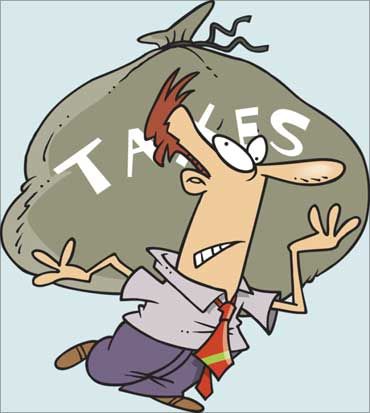 An evasion of Rs 25 lakh (Rs 2.5 million) could attract prison of up to a year and a fine; jail term could go up to 3 years if evasion exceeds Rs 50 lakh (Rs 5 million)
An evasion of Rs 25 lakh (Rs 2.5 million) could attract prison of up to a year and a fine; jail term could go up to 3 years if evasion exceeds Rs 50 lakh (Rs 5 million)
Tax evaders could be exposed to harsher penalties, including a lower threshold for arrest provisions, according to the draft model goods and services tax law.
A tax evasion of Rs 25 lakh (Rs 2.5 million) could attract prison sentence of up to one year and a fine.
The sentence could go up to three years if the evasion exceeds Rs 50 lakh (5 million).
Non-bailable arrest with imprisonment of up to five years could follow if the evasion value exceeds Rs 2.5 crore (Rs 25 million), apart from fines.
Ranjeet Mahtani, partner, Economic Laws Practice, said: “These provisions might affect investor confidence and raises some concerns.”
Currently, the monetary threshold for tax authorities to conduct arrest for any offence under the provisions of the Central Excise Act, 1944, is Rs 1 crore (Rs 10 million), and Rs 2 crore (Rs 20 million) under the Finance Act, 1994, (dealing with the service tax law).
However, the maximum applicable jail term under these Acts is seven years.
Experts feel that in the initial years, when the GST provisions would be new, the government should tackle such issues with soft hands than through threats of arrest.
Pritam Mahure, a Pune-based chartered accountant, said: “Non-payment could be an issue of interpretation than intention.
"Thus, appropriate checks and balances should be introduced.”
The draft model GST law has expanded the power to arrest a person to 12 specified offences under Section 62 and Section 73 of the model law.
This includes supplying goods or services without issue of invoice or issue of false invoice, issuing invoice without supply of any goods or services, not crediting collected tax amount to government, utilising input tax credit without actual receipt of goods or services, obtaining any refunds fraudulently, falsification of financial records to evade payment of tax, among others.
Tax experts said despite being a fiscal statute, the power to arrest has been retained in the model Goods and Services Tax law to deter tax evasion and non-compliance.
Interestingly, the government has reverted to the Rs 50-lakh (Rs 5-million) threshold to trigger arrest in the model GST law.
This threshold was raised from Rs 50 lakh for service tax to Rs 2 crore in the Finance Act, 2016.
“This could either mean an oversight on part of the draftsman, or a flip-flop in government thinking,” said Mahtani.
Tax experts also said codifying penal provisions under the draft model GST law marks a change from earlier position across indirect tax laws in which penalties were more generic and subjective.












 © 2025 Rediff.com -
© 2025 Rediff.com -